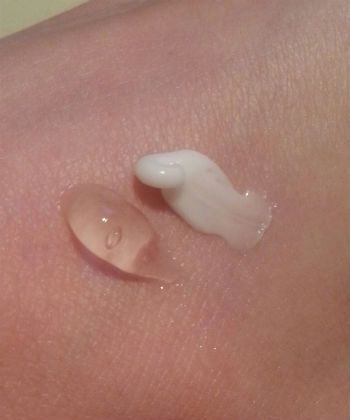As a product junkie and blogger, I read tons of ingredient labels. I’m also keen on marketing tactics that cosmetic companies use to hook ladies looking for the perfect tresses. From label fonts and coloring and pixie dust extracts (you know, the ones featured prominently on the front label, but that are actually listed as 28th of 32 ingredients”> to peddling promises that can’t be delivered, thousands of dollars are spent to connect their products with your wallet. Don’t get me wrong, I’m not against marketing products at all. I’m just not a huge fan of watching people be misled, especially when it comes to oils and serums for the hair.
In many drugstores, beauty supply and salon stores, there are serums everywhere that are labeled as oils, and many ladies using them as though they are pure oils. Often times, they’re infinitely more expensive than the raw ingredients they tout on the label. To help you safeguard your wallet and get the most out of what you put in your hair, let’s dive head first into a quick savvy shopper lesson on oils vs. serums.
Oils Vs. Serums

Oil Categorization
Oils are essentially fats that are liquid at room temperature. They can come from a variety of sources, and be extracted by any number of means. Most oils will have the words pure or 100% displayed prominently on the label without any fine print. When it comes to oils, you really can’t go wrong.
Most oils are full of omegas/fatty acids and various vitamins, while touting an array of healing, antiseptic, scalp stimulating, soothing, smoothing, and other properties.
Although any oils are fair game, those which are labeled as virgin/pure/unrefined, cold pressed, and organic are best.

Popular Oils for Hair
Many pure oils are readily available and inexpensive, and can be found in the cooking aisle, like:

Other Effective (And Affordable”> Oils
Other oils that are just as amazing and still very affordable, like:
- Sweet Almond Oil
- Castor Oil
- Apricot Seed Oil
- Macadamia Oil
- Safflower Seed Oil
- Jojoba Oil
- Avocado Oil
These are available at vitamin and health food stores. For more information on oils, read along here!

Serum Break-Down
Hair serums are essentially solutions that provide targeted conditioning to the hair. They often promote shine, cuticle smoothing, detangling ability, and taming of flyways. Serums tend to be heavily based in silicones such as cyclopentasiloxane and amodimethicone because of their ability to coat the hair, provide the aforementioned benefits and sun damage protection, and some thermal styling protection–all while being lightweight and non-greasy.
Many silicones evaporate from the hair, which helps prevent them from causing buildup. Although silicone-based, serums often contain oils and extracts for additional softening and nourishing of the hair.
Now that we’ve got a little background on the distinction, let me say this: I don’t think serums are bad. Whenever I’m going to straighten my hair, I always make sure there is a serum in the mix. Right now, my go-to is Garnier Fructis Marvelous Oil.
Read The Labels!
If you don’t read the rest of the label, you’d pick this orange liquid drop shaped bottle up thinking you’ve got some fancy blend of jojoba oil and amla extract. But a closer look at the front and back labels confirms this is a serum. And there is nothing wrong with that!
Do not expect a hair serum to nourish and moisturize your hair, because serums are typically not water-based and often times the natural oils and extracts are so far down on the list, they aren’t present in concentrations enough to be effective.

Shop Smart
So, what are you saying Christina? By all means, use serums. I love them, there are tons of great ones. But be a little more keen before spending tons of money, and definitely take the time to do a little investigation of your own before dropping down your debit card. Chances are, you can find serum comparable to the more expensive counterparts for a fraction of the cost.
Here are a few of my favorite affordable and super effective serums (all under $10″>:
Read more: 10 Cheap, Easy Fixes for an Oily Scalp

My Serum Conclusion
Any of the serums mentioned in the previous slide can be used as a part of a heat protection regimen when straightening, or to impart shine and help lock out frizz on natural hair. If your hair is feeling dry, rough, or brittle, don’t automatically reach for the nearest super potion–serums are a temporary patch, not a long-term solution. They’re best for enhancing healthy hair, not masking damage.
Follow my blog and read my latest post at www.maneobjective.com!






